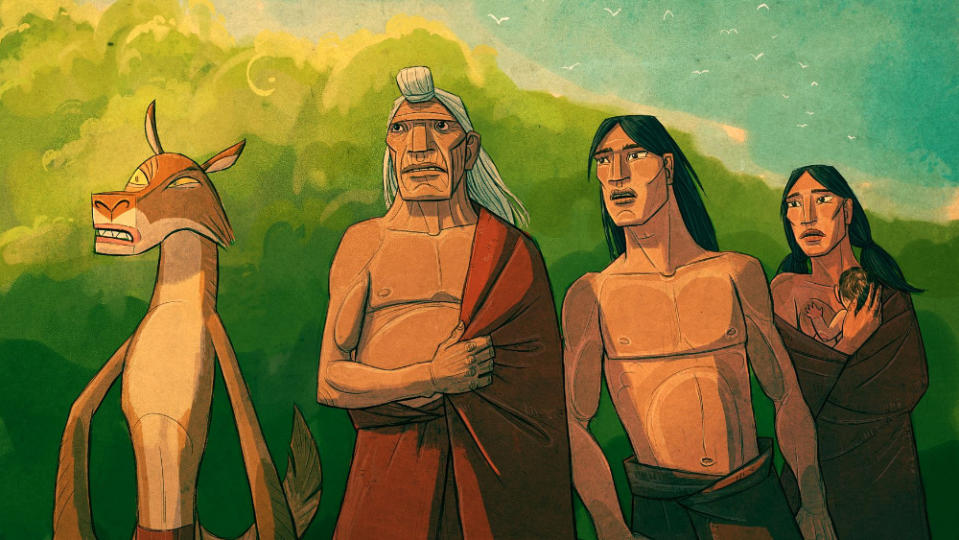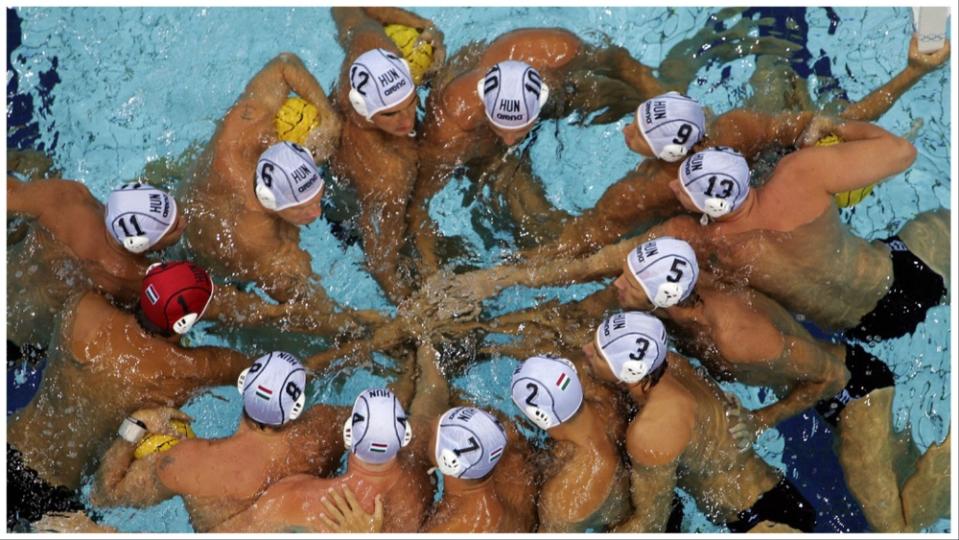Hungarian Film Festival of Los Angeles Brings the Best of Magyar Cinema to American Audiences

As a young boy growing up in Budapest, a town that would come to be known as “Hollywood on the Danube,” Béla Bunyik dreamed of being in the pictures. “I fell in love with movies in Hungary back in the ’50s,” Bunyik tells Variety. “When I was 12 years old, I started to work as an extra in a few movies…. In 1953, I spent a whole summer with a bunch of kids and some of the best Hungarian actors at the time.”
He recalls being picked up after school by talent scouts and cutting his teeth on the sets of films like Viktor Gertler’s 1954 adventure-comedy “Me and My Grandfather.” “Seeing how a movie was done was very exciting for me and I was sad when the summer ended, and the film was shut,” he says. But those formative years sparked a lifelong obsession. “I got hooked.”
More from Variety
Bunyik would later emigrate to the U.S., launch a production and distribution company, and co-found the Hungarian Film Festival of Los Angeles with his late wife, Bonnie Anderle Bunyik. As the festival prepares to launch its 21st edition, which runs Oct. 27 – Nov. 2 at the Laemmle Monica Film Center, Bunyik — who recently turned 85 — says he’s still enthralled by the silver screen and by the films produced by the Magyar film industry. The week-long event will showcase the best in contemporary Hungarian cinema, with Bunyik insisting: “The 21st Hungarian Film Festival of Los Angeles is one of our most exciting to date.”
Though the festival topper’s life-long love affair with cinema began in Budapest, it found its match in Bonnie, his wife of 48 years, who passed away in 2021. The two met after Bunyik left his native Hungary for L.A. “My wife Bonnie was a real California girl. She loved music very much and she liked Hollywood films with big stars,” he says. “She had no interest in going to see foreign films and reading subtitles. I started to take her with me to see French, Italian and all sorts of foreign films, but we ended up fighting many times after seeing a film. It took some time to pique her interest in foreign films. But she became my best helper to pick a film for distribution and also programming our film festival. I miss her a lot.”

In 1982, the duo founded the production and distribution company Bunyik Enterprises, initially bringing Hungarian and Eastern European cinema to North American audiences. A decade later, they acquired U.S. distribution rights to Hungarian director Róbert Koltai’s comedy “We Never Die,” which was the Hungarian entry for best foreign language film at the 66th Academy Awards. The movie played to sold-out houses at L.A.’s Laemmle Theater and was acquired by HBO. Many of the Hungarian filmmakers who Bunyik had befriended — and represented — over the years began to ask: Why not dip into that robust catalog to showcase the best of Hungarian cinema to American audiences?
The Hungarian Film Festival of Los Angeles’ first edition was mounted in 2003. Among the festival’s early champions was the legendary Los Angeles Times film critic Kevin Thomas, while a procession of notables has attended in the past, including Academy Award winner (and noted film buff) Quentin Tarantino, actor Jim Belushi, three-time Oscar-nominated Polish filmmaker Agnieszka Holland, “Basic Instinct” and “Showgirls” scribe Joe Eszterhas, California Film Commission executive director Colleen Bell, KISS frontman Gene Simmons, Sony Pictures Classics co-president Michael Barker, “Empire Strikes Back” director Irvin Kershner and iconic leading man Tony Curtis.
This year’s festival opens with “Semmelweis,” a period biopic drama from Oscar-nominated cinematographer and director Lajos Koltai (“Fateless,” “Evening,” “Malena”). Set in 1847, as a mysterious epidemic is raging in a maternity clinic in Vienna, the film follows the Hungarian-born doctor Ignác Semmelweis in a race against the clock to solve the mystery and save lives while clashing with the city’s medical establishment. The lead role is played by rising Hungarian actor Miklos H. Vecsei and features cinematography by Andras Nagy.
As in years past, the fest will celebrate the Hungarian entry in the best international feature film Oscar race, and this year that honor falls to “Four Souls of Coyote.” Written and created by Annecy Cristal winner Áron Gauder (“The District!”), the 2D-animated feature — which scooped a jury award at Annecy this year — is an epic adventure about the creation of the universe inspired by a Native American myth. The festival closes with “Golden Legends,” Tamas S. Zákonyi’s documentary about the Hungarian Olympic champion men’s water polo team, which broke box office records for a documentary earlier this year.

Across the selection, the Hungarian Film Festival of Los Angeles offers a mix of arthouse fare and commercial hits, what Bunyik describes as “a very colorful festival” with a “big diversity of films.” Other highlights include Gábor Rohonyi and Csaba Vékes’ comedy “Be My Dad!” and Yvonne Kerékgyártó’s romantic drama “We Started Together” — two of last year’s biggest domestic box-office hits in Hungary — as well as the animated feature “Toldi,” the final film from the animation pioneer Marcell Jankovics. The Palme d’Or winner and Oscar nominee, who died in 2021, directed the first feature-length Hungarian animated film, “Johnny Corncob” (1973), and was involved in more than 100 films as a director, figure designer, animator and specialist.
Also anticipated is Noemi Szakonyi Veronika’s youth drama “Six Weeks,” which has been awarded by a number of international film festivals including Shanghai and Tallinn, where it won the Just Film Grand Prix last year. A low-budget debut feature, it’s among the titles that Bunyik singles out as part of what he sees as a bright future for the Magyar film industry.
“Hungarian cinema is going through some changes by young filmmakers. Small budget films are winning prizes lately at many festivals. A young, talented generation is coming out from all over the country. Private film schools opened, filmmaking got more interesting than before, new film festivals are opening even in smaller cities,” Bunyik says. “Last year I was invited to be a jury member of the Adolph Zukor International Film Festival. It was amazing the quantity of independent films that were entered for selection. Everybody had a story to tell. This is a very exciting time for Hungarian film.”
Best of Variety
Sign up for Variety’s Newsletter. For the latest news, follow us on Facebook, Twitter, and Instagram.

